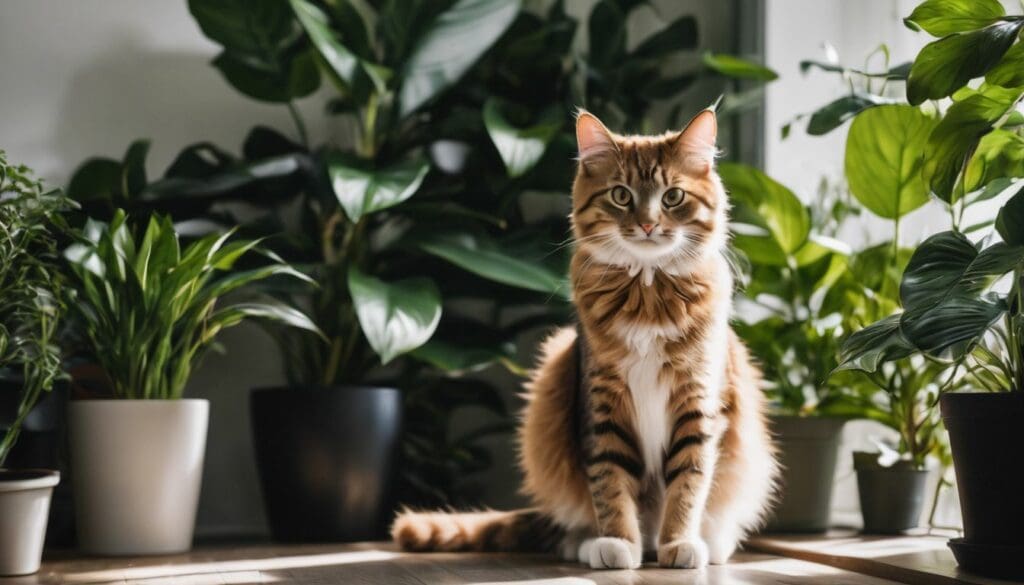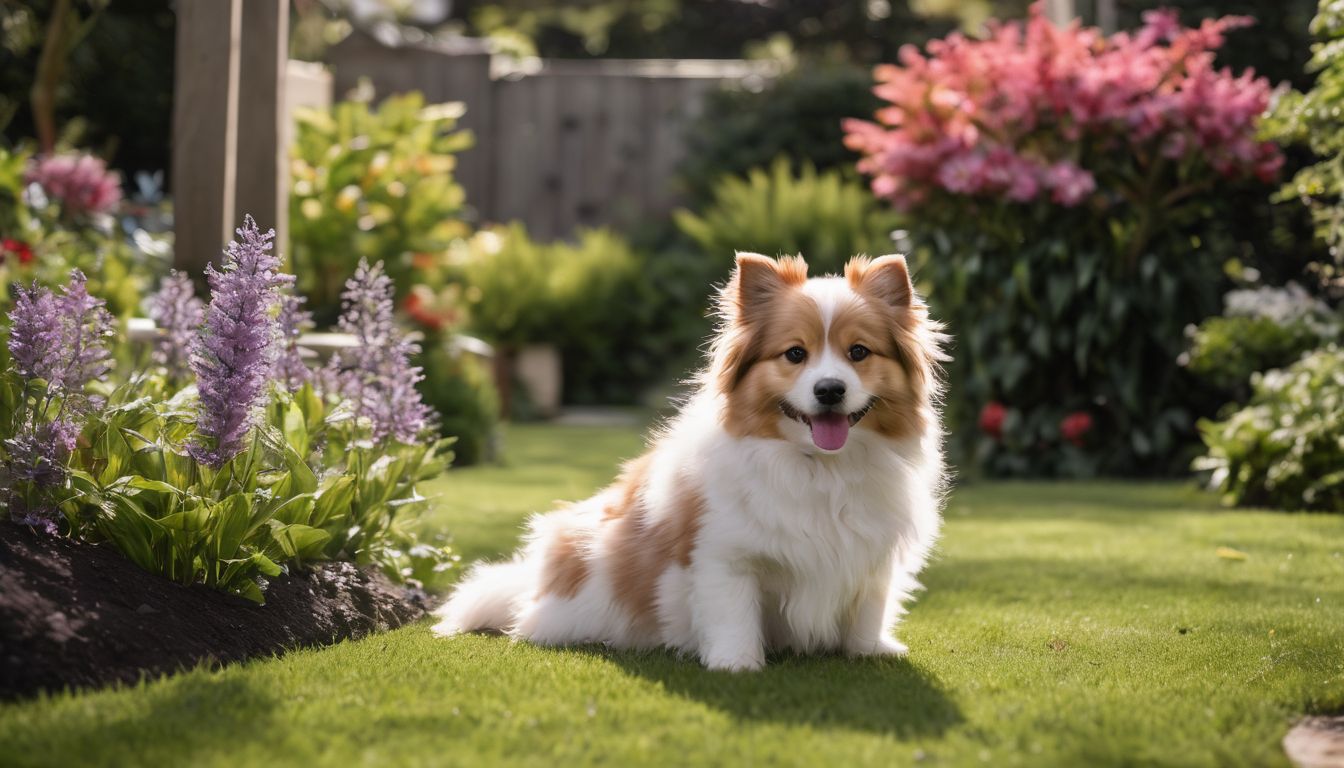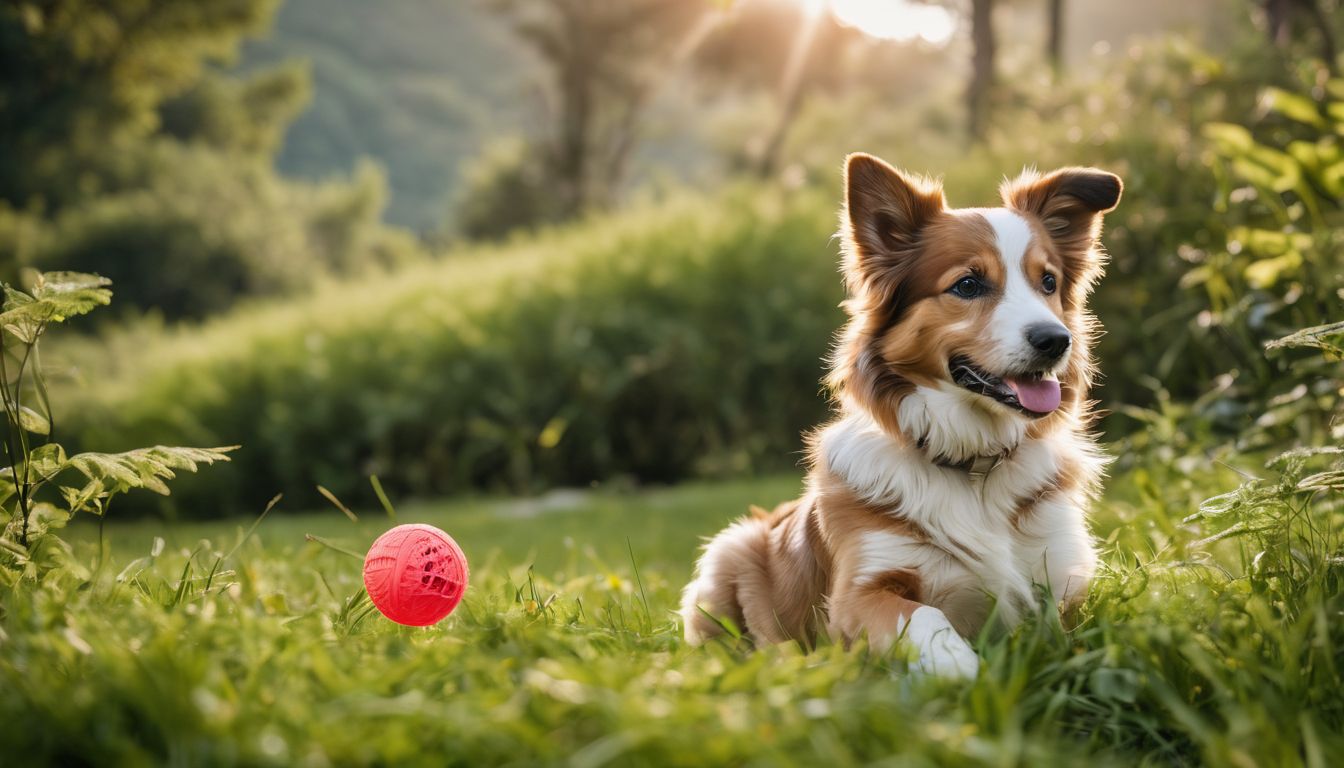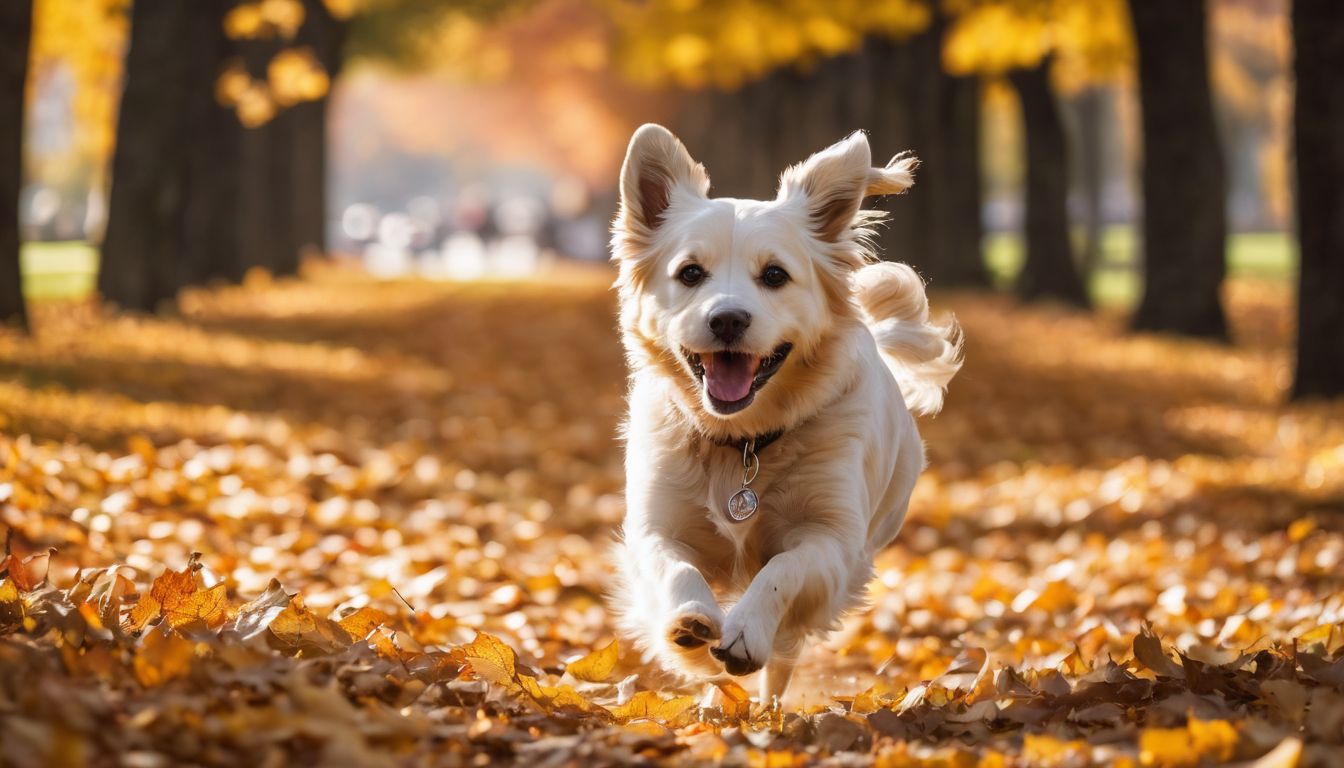Are you worried your beloved pet might nibble on something they shouldn’t? Indoor plants can beautify our homes but pose hidden dangers to our furry friends. Fear not, this blog unveils a variety of pet-friendly plants that ensure safety and serenity for both you and your companion animals.
Keep reading; it’s time to grow a safe indoor jungle!
Key Takeaways
- Including pet – friendly plants in your home improves air quality by absorbing toxins and increasing oxygen levels, making for a healthier environment for both pets and owners.
- Pet-safe houseplants reduce stress and anxiety through their calming presence, provide enrichment that promotes emotional well-being in pets, and boost mood and focus to enhance productivity.
- There is a wide variety of nontoxic indoor and outdoor plants suitable for homes with pets; these include safe herbs like basil and parsley, non-toxic flowering plants such as African violets, pet-friendly foliage like spider plants, succulents including echeverias, as well as outdoor beauties such as lavender.
- If a pet ingests a toxic plant, immediate action should be taken: remove any plant matter from the animal’s mouth, identify the plant consumed if possible, consult with a veterinarian promptly, follow recommended first aid steps until professional care is received.
- Creating an inviting garden space or home interior with pet – friendly plants can offer mental stimulation for animals while adding natural beauty to living spaces without compromising pet safety.
The Link Between Pet-Friendly Plants and Health
Pet-friendly plants offer a range of health benefits, including improved indoor air quality, reduced stress and anxiety, and increased productivity. These plants can have a positive impact on both pets and their owners’ overall wellbeing.
Improved Indoor Air Quality
Pet-friendly plants are a natural way to enhance the air you breathe at home. They work around the clock to absorb toxins such as formaldehyde, ammonia, and benzene found in everyday household items like cleaning products and paint.
This process not only cleanses the air but also boosts oxygen levels, making your living space a fresher environment.
Certain houseplants act as robust air purifiers without posing risks to curious pets that may nibble on their leaves or flowers. Having these green companions indoors can be especially beneficial for allergy sufferers as they reduce airborne dust particles and increase humidity levels during dry seasons.
Next, explore how pet-safe plants contribute to reduced stress and anxiety for both you and your four-legged friends.
Reduced Stress & Anxiety
Pet-friendly plants contribute to reduced stress and anxiety. The presence of greenery has a calming effect on both pets and owners, creating a tranquil environment. Nontoxic houseplants can serve as natural stress relievers for pets, promoting their emotional well-being.
Additionally, the air-purifying benefits of indoor plants can enhance the overall wellness of both humans and animals, leading to a more relaxed and harmonious living space.
Furthermore, incorporating pet-safe plants into your home provides an opportunity for nurturing and caring for living organisms, which can be therapeutic for individuals who are passionate about conservation and environmental sustainability.
Increased Productivity
Pet-friendly plants can enhance productivity at home or work. Indoor greenery has been shown to boost mood and focus, leading to increased efficiency in tasks. The presence of pet-safe houseplants promotes a calming environment which can positively influence mental wellbeing and cognitive function.
This benefit extends beyond human occupants, creating a relaxed space for pets and owners alike.
Petsafe plants add an element of tranquillity to the surroundings, helping individuals stay more centred while working. Moreover, integrating natural elements into indoor spaces creates a conducive atmosphere for creativity and problem-solving.
Pet-Safe Houseplants for Cats and Dogs
Looking to bring some greenery into your home without compromising the safety of your furry friends? Discover a variety of pet-safe houseplants that are nontoxic and harmless for both cats and dogs.
From flowering plants to foliage varieties, there are plenty of options to choose from that will add life and beauty to your living space.
Nontoxic Flowering Houseplants
Nontoxic flowering houseplants are a beautiful addition to any pet-friendly home, providing both aesthetic appeal and safety for your furry friends. Here are some pet-safe options to consider:
- African Violet (Saintpaulia): This vibrant flowering plant is non-toxic to cats and dogs, adding a splash of colour to your indoor space.
- Orchids: These elegant blooms are safe for pets and can thrive in various indoor conditions, making them a versatile choice for pet owners.
- Bromeliads: Known for their striking foliage and long-lasting flower spikes, bromeliads are non-toxic to pets and can brighten up any room.
- Friendship Plant (Pilea involucrata): With its unique textured leaves and delicate pink flowers, this pet-safe plant is perfect for adding a touch of nature indoors.
- Christmas Cactus (Schlumbergera): This low-maintenance plant provides beautiful blooms during the holiday season while remaining safe for pets if ingested.
- Spider Plant (Chlorophytum comosum): Not only is this plant safe for pets, but it also helps purify the air with its natural air-filtering abilities.
- Peperomia: With its ornamental foliage and minimal care requirements, peperomia varieties offer non-toxic beauty for your living spaces.
Flowing, Climbing, and Cascading Pet-Safe Houseplants
Pet-safe houseplants that cascade, climb, or flow can bring a touch of natural beauty into your home while keeping your pets safe. These types of plants provide enrichment for both you and your pets. Here are some examples of flowing, climbing, and cascading pet-safe houseplants:
- Spider Plant (Chlorophytum comosum): With its arching leaves and ability to produce baby spider plants, this non-toxic plant is perfect for hanging baskets or as a trailing accent on shelves.
- Boston Fern (Nephrolepis exaltata): This lush green fern with gracefully drooping fronds is safe for pets and adds a refreshing touch to any indoor space.
- Swedish Ivy (Plectranthus verticillatus): This fast-growing plant features trailing stems perfect for hanging pots or containers, providing an attractive addition to your home decor.
- Lipstick Plant (Aeschynanthus radicans): Known for its vibrant red flowers resembling lipstick tubes, this pet-safe plant can be grown in hanging baskets to create stunning visual interest.
- String of Pearls (Senecio rowleyanus): The unique bead-like leaves of this succulent make it an eye-catching choice for hanging planters or as a cascading accent in any room.
- Wandering Jew (Tradescantia zebrina): This hardy plant with striking purple and green foliage is an excellent choice for adding a pop of colour as it trails gracefully from pots or planters.
Foliage Houseplants That are Safe for Pets
Foliage houseplants provide lush greenery while being safe for pets. They bring natural beauty to your space and are non-toxic to cats and dogs. Here are some pet-friendly foliage houseplants:
- Spider Plant: This resilient plant is safe for pets and helps cleanse the air.
- Boston Fern: A graceful, leafy fern that thrives in humid conditions and is safe for pets.
- Areca Palm: This palm adds a tropical touch to your home and is non-toxic to pets.
- Money Plant: Known for its air-purifying qualities and safe for pets to be around.
- Parlor Palm: A low-maintenance, pet-friendly option that thrives in indirect light.
Other Pet-Friendly Houseplants
Many other pet-friendly houseplants can enhance your indoor space while keeping your pets safe. Here are some options that offer beauty and safety:
- Boston Fern: This lush green plant is non-toxic to pets and helps improve air quality.
- Friendship Plant: Known for its vibrant foliage, this plant is a safe choice for homes with pets.
- Cast Iron Plant: With its hardy nature, this plant thrives in low light conditions and is pet-friendly.
- Parlor Palm: This elegant palm adds a tropical touch to your space and is safe for pets.
Pet-Safe Outdoor Plants for Your Garden
Explore a variety of pet-safe herbs, nontoxic succulents, and flowering plants that you can incorporate into your outdoor garden. Create a safe and stimulating environment for your pets while enjoying the natural beauty of these plants.
Pet-Safe Herbs
Pet-safe herbs provide natural enrichment for pets and offer various wellness benefits for humans.
- Basil: This herb is safe for pets and can be used fresh or dried in their diets. It aids in digestion and adds a refreshing aroma to your home.
- Parsley: Safe for both cats and dogs, parsley helps freshen breath and supports healthy digestion when added to their meals.
- Rosemary: Safe for pets, rosemary can be used to enrich their environment with its pleasant fragrance, promoting mental stimulation.
- Thyme: This safe herb can be grown indoors or outdoors and has natural antibacterial properties, contributing to a healthy living space for you and your pets.
- Mint: Pet-friendly mint provides a natural stress reliever for pets whilst making an attractive addition to your indoor garden.
Nontoxic Succulents
When considering pet-safe outdoor plants, it’s important to explore nontoxic succulents, which are excellent options for environmentally conscious individuals with pets. Succulents such as echeverias, haworthias, and sedums are not only low-maintenance but also safe for your furry companions. These plants add a touch of natural beauty to your garden while providing peace of mind knowing that they won’t harm your pets if ingested.
- Echeverias: These rosette-shaped succulents come in a variety of colours and are safe for pets. They can be planted in pots or directly in the ground, adding an aesthetic appeal to outdoor spaces.
- Haworthias: These small, easy-to-care-for succulents have a unique appearance and are non-toxic to cats and dogs. They make great additions to rock gardens or as accents in planters.
- Sedums: With their fleshy leaves and attractive flowers, sedums are safe for pets and thrive in various climates. Their versatility makes them an ideal choice for environmentally conscious individuals looking for pet-friendly outdoor plants.
- Other Pet-Safe Succulents: There are numerous other nontoxic succulents such as jade plants (Crassula ovata) and burro’s tail (Sedum morganianum) that can be incorporated into your garden without posing a risk to your beloved pets.
Pet-Friendly Flowering Plants
Pet-friendly flowering plants add a burst of colour to your home while ensuring the safety of your pets. These vibrant and non-toxic plants can brighten up any space and provide a welcoming environment for both humans and animals.
- African Violet (Saintpaulia): With its delicate, violet-hued blooms, African Violets are safe for pets and make charming additions to any indoor space. They thrive in bright, indirect light and are easy to care for.
- Friendship Plant (Pilea involucrata): This pet-safe houseplant features unique, textured leaves and produces small, pink flowers that add a touch of whimsy to your home. It is excellent for hanging baskets or as a tabletop accent.
- Orchid (Orchidaceae): Known for their exquisite blossoms, orchids are non-toxic to pets and come in a variety of colours and patterns. These elegant plants can be displayed on windowsills or as centrepieces.
- Spider Plant (Chlorophytum comosum): Popular for its air-purifying qualities, the spider plant is safe for pets and produces tiny white flowers. Its cascading foliage makes it an attractive addition to any pet-friendly indoor space.
Other Pet-Safe Outdoor Plants
When selecting outdoor plants for your pet-friendly garden, consider the following options:
- Lavender: This fragrant herb is safe for pets and adds a beautiful touch to your outdoor space.
- Sunflowers: These bright and cheerful flowers are non-toxic to pets and can bring a burst of colour to your garden.
- Rosemary: This aromatic herb is not only safe for pets but also serves as a natural pest repellent.
- Snapdragon: These vibrant flowers are a safe and attractive addition to any pet-friendly garden.
- Zinnias: These colourful blooms are non-toxic to pets and can thrive in various outdoor conditions.
- Marigolds: These cheerful flowers are safe for pets and can help deter pests from your garden.
- Alyssum: This delicate flower adds beauty to your garden while being safe for your furry companions.
Reasons to Combine Your Love for Pets and Plants
Combining your love for pets and plants can provide added enrichment for your furry friends and enhance the overall aesthetics and decor of your home. Read on to discover more about the benefits of pet-friendly plants.
Added Enrichment for Pets
Indoor and outdoor plants can provide added enrichment for pets. Bringing natural elements into your living space not only enhances the aesthetic appeal but also creates an engaging environment for your pets.
Petsafe houseplants such as cat grass, spider plant, and Boston fern offer a safe and stimulating outlet for animals to interact with nature indoors. This interaction promotes physical activity, mental stimulation, and emotional well-being for your furry companions.
Furthermore, incorporating pet-friendly plants into your outdoor garden allows pets to explore and enjoy the natural surroundings while ensuring their safety. Outdoor activities like sniffing around herbs or watching birds attracted by flowering plants can be both entertaining and enriching experiences for pets.
Aesthetics and Decor
Decorate your living space with pet-friendly houseplants to enhance the aesthetic appeal. Incorporating indoor plants not only adds a touch of natural beauty but also creates a calming and welcoming environment for both pets and humans.
Place leafy, non-toxic varieties strategically around your home to accentuate the decor while ensuring the safety of your furry companions.
Pet-friendly houseplants can be an integral part of your interior design, bringing nature indoors without compromising on style or safety. Whether it’s cascading foliage, vibrant flowering plants, or attractive succulents, there are plenty of options that contribute to a visually appealing and pet-safe living space.
What to Do If Your Pet Eats a Toxic Plant
If your pet eats a toxic plant, it’s important to recognise the symptoms of plant poisoning and seek immediate professional help. Read on to learn how to keep your pets safe around plants in your home and garden.
How to Recognise Toxic Plants
Recognising toxic plants is essential to keep your pets safe. Look for plants with milky sap, thorns, or prickles as they can be harmful. Check for plants with glossy leaves, bulbs, or berries that may pose a threat to your furry friends.
- Look out for common toxic houseplants like lilies, philodendrons, and peace lilies. These plants can cause gastrointestinal upset, vomiting, or even kidney failure in pets if ingested.
- Be cautious of outdoor plants such as azaleas, daffodils, and rhododendrons which are known to be toxic to pets. Ingestion can lead to symptoms like drooling, diarrhoea, or even cardiac arrhythmias.
- Avoid bringing in plants like aloe vera, jade plant (Crassula ovata), and snake plant (Sansevieria trifasciata) as they can be toxic to cats and dogs if consumed. These plants can cause vomiting and diarrhoea in pets.
Steps to Take if Your Pet Ingests a Toxic Plant
If your pet ingests a toxic plant, it’s crucial to act quickly and seek veterinary attention. Here are the steps to take if your pet ingests a toxic plant:
- Remove any remaining parts of the plant from your pet’s mouth.
- Identify the plant and take notes on its appearance and any potential symptoms in your pet.
- Contact your veterinarian or an emergency animal poison control center immediately for guidance.
- Follow any first – aid measures recommended by the veterinarian or poison control center.
- Monitor your pet closely for any signs of distress or worsening symptoms.
Seeking Professional Help
If your pet ingests a toxic plant, seek immediate help from a veterinarian. Professional assistance is crucial in treating potential poisoning. Do not attempt to induce vomiting unless advised by the vet, as it can worsen the situation for your pet.
Call the animal poison control center or emergency veterinary clinic for guidance and bring any remaining parts of the plant with you for identification. Treatment may include inducing vomiting, administering activated charcoal, or other supportive measures to ensure your pet’s safety.
Remember that time is of the essence when dealing with plant toxicity in pets. Immediate professional intervention is key to preventing serious harm and ensuring a swift recovery for your beloved companion.
Conclusion
Incorporating pet-friendly plants into your home can enhance both the well-being of your beloved pets and your own health. By choosing non-toxic houseplants and outdoor greenery, you create a safe environment for your furry friends to thrive in.
Ultimately, embracing this natural decor not only improves air quality but also adds enrichment for pets and contributes to a happier, healthier living space for all.
FAQs
1. What makes a plant pet-friendly?
A pet-friendly plant is non-toxic and safe for pets like Fido to be around, so you don’t have to worry about them nibbling on your natural decor.
2. Can plants really improve health in my home?
Absolutely! Pet-friendly house plants can purify the air and contribute to improved health for humans and our furry friends living indoors.
3. Are there any medicinal benefits of pet-safe plants for my pets?
Yes, some nontoxic plants serve as a digestive aid for pets while also being medicinal plants with benefits for humans.
4. Is it difficult to care for pet-friendly indoor plants?
Not at all! With simple plant care routines, you can easily maintain these safe indoor plants while gardening with pets.
5. How do I make sure my home is both beautiful and petfriendly with plants?
You can create a petfriendly home by selecting petsafe varieties that add charm as natural decor without posing risks to your animals.





